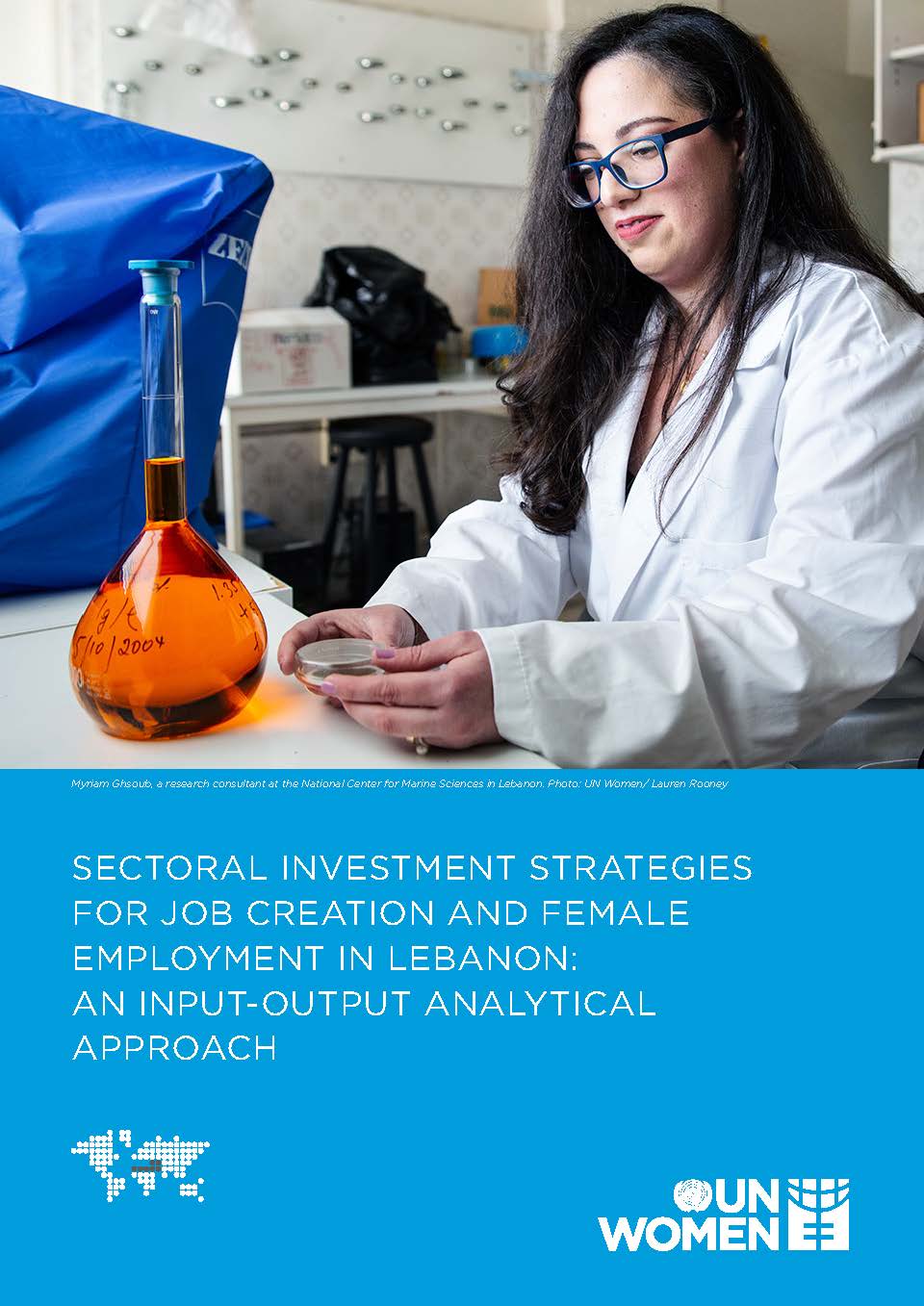
Sectoral Investment Strategies for Job Creation and Female Employment in Lebanon: An Input-Output Analytical Approach

While the economic crisis in Lebanon has significantly impacted the entire population, women have acutely felt its ramifications. Women are frequently the first to lose their jobs, resulting in higher unemployment rates among women than among men. The decline in formal employment opportunities has pushed numerous women to seek employment in the informal sector, where they grapple with inadequate working conditions, limited job security, and low compensation. Concurrently, women shoulder an overwhelming burden of unpaid care and domestic work, limiting their ability to participate fully in the economy. Their limited access to financial resources further impedes the economic independence of many women. These socioeconomic issues also increase their risk of violence, as financial and employment uncertainty exacerbate existing disparities. Economic barriers particularly affect women from impoverished communities, as well as those who face multiple forms of discrimination, such as refugees or women with disabilities.
The aim of this report is to project female employment trends in Lebanon from 2023 to 2028 by utilizing a projection model that explores various scenarios across
key sectors. Additionally, the report employs input-output analysis to assess job creation potential, both direct and indirect, with a particular emphasis on sectors where women are underrepresented. This analysis seeks to inform policies that can drive inclusive economic recovery and promote gender equity in employment.